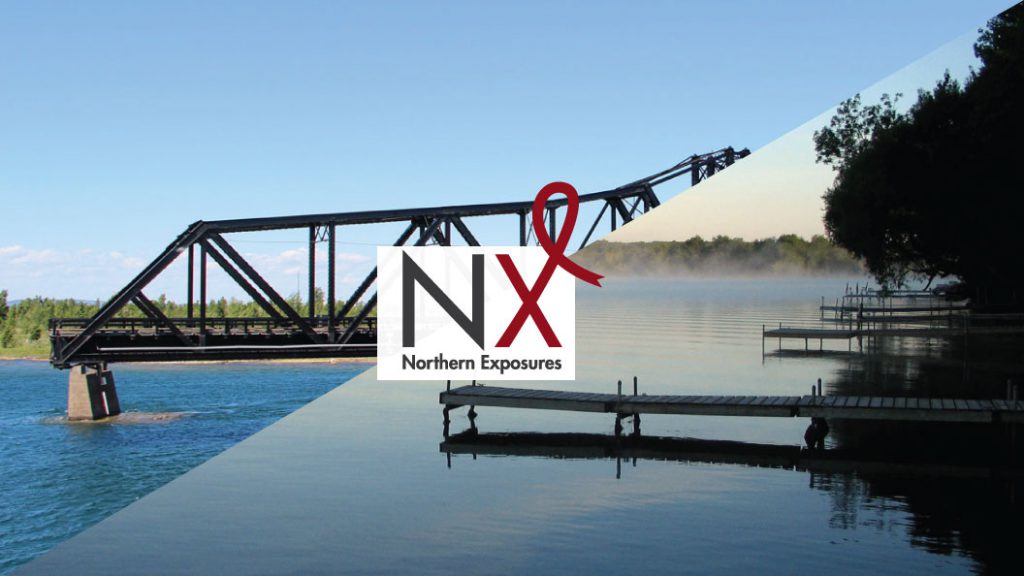Assisting homeless individuals who are dependent on alcohol
Tina Ranta of the Canadian Mental Health Association (Sudbury-Manitoulin) described the launch of the first managed alcohol program (or “MAP”) in Sudbury. The Sudbury Harm Reduction Home began with a brain-storming session hosted by the Northeast Local Health Integration Network, where service agencies and people with lived experience noted the absence of programming for alcohol-dependent, homeless residents.
In response, the CMHA created the Harm Reduction Home, where alcohol is “dosed” (like medication) to people who are homeless or at risk of homelessness, alcohol-dependent, and under physician supervision. Ranta explained that the Home is not a “wet shelter,” but rather a facility where clients have access to a range of services, including primary health care, nursing services, income support assistance, and peer support. The Home also partners with other Sudbury-area ASOs and agencies to provide as much wrap-around care as possible.
Ranta argued that programs such as the Harm Reduction Home represent a great step forward in terms of “meeting people where they are at,” and working with the most socially marginalized individuals. Results from similar managed alcohol programs have found that the approach:
- helps clients reduce alcohol use and pivot away from non-beverage forms of alcohol
- increases a client’s sense of trust, well-being, and acceptance
- reduces police and emergency health care costs.
Bringing HIV and HCV testing to the community
Camille Lavoie of Réseau Access Network (RAN) in Sudbury described two innovative programs that bring HIV and HCV testing to rural communities and to individuals who face barriers to traditional testing. The new approaches began in 2013, when a group of individuals in Sudbury tested positive for HIV and told RAN they had shared needles with people who weren’t getting tested – mostly due to alcohol consumption. It was suggested that, to reach these individuals, testing had to occur in the morning, before alcohol use started.
In response, RAN started a mobile outreach program called “Testing Under the Tent.” Since the people they wanted to reach were sleeping rough, the agency set up a BBQ and cooked breakfast on a path nearby. Once people had eaten and felt comfortable, they were offered the option of free HIV/HCV testing in a separate tent. The arrangement worked well enough that RAN began to offer “testing under the tent” on a regular basis, with flyers announcing the times and locations of coming events. “Testing under the tent” also partnered with HAVEN, a local HIV clinic, so that clients who tested positive could be immediately referred to care.
RAN then decided to bring the “testing under the tent” concept to hard-to-reach communities with few testing options. Working from a van, and travelling over 1400 kilometers, nursing staff set up tents in seven rural Ontario locations. The tents featured games, education, “loot bags,” and—if people were comfortable with the idea—testing. Everyone who tested was provided with a card outlining how to receive test results. Over 55 people in hard-to-reach locations were tested in one trip, showing that mobile outreach strategies delivered in innovative ways can successfully connect with rural, remote, and marginalized residents.
Mobilizing the power of peers
Ken Miller described the unique work being done by People Advocating for Change through Empowerment (PACE), which is based in Thunder Bay and has branch offices in four Northern Ontario locations.
PACE is a “consumer survivor” run organization that specializes in informal peer support around mental health or addiction issues. While formal peer support might focus on working towards a clear goal, Miller explained that informal peer counselling focuses on day-to-day problems and talks that might not “lead” anywhere. PACE is a drop-in style agency, with no commitments, appointments, or pressure to show for classes or programs. The focus is entirely on what clients themselves need on a given day or at a given time.
“It’s a really easy atmosphere…My door is always open and so is everyone else’s. So if you want to come and talk, let’s talk.”
PACE offers recreation, social, and treatment programs, as well as free laundry services, food banks, safer sex kits, and safer inhalation and injection kits. But the main thing the agency offers is a sense of shared experience, which helps build trust between peers and clients. PACE is connected to a range of other agencies, and once a client feels comfortable enough with PACE, he or she might be referred to more formal counselling and support.
Miller emphasized that, because of the richness of shared experiences, and the absence of formal obligations, PACE is able to connect with some of the most hard-to-reach individuals. As a result, the agency sees many people no other agency sees – and this is often the first step in linking those individuals to care.
“We’re there in the in-between. When you don’t have an appointment for two weeks [with another agency], and you need help now, we’re here now.”
Resources
